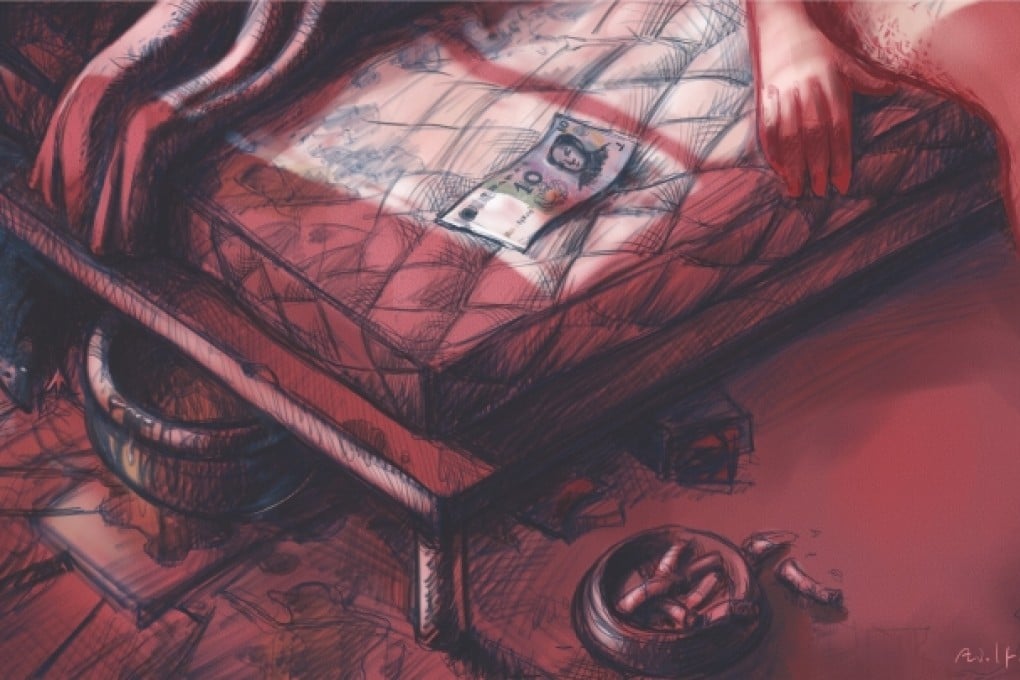Inside the world of a '10-yuan' sex worker
Up to 20 million women are said to be operating in the mainland's sex trade. A Post reporter investigates the reality of life on its lowest rung

Two elderly men with grey hair hold a stash of small bills as they guard a narrow staircase next to a pharmacy tucked inside a three-storey building, well hidden down a dark alley.

A skinny man in his 60s slowly zips up his trousers as he walks out of one of the rooms.
It isn't yet noon.
A row of yellow doors, some open, some closed, line the right-hand side of the corridor. There is no need for a reception desk. Only two types of people come here and they know what they want; men seeking cheap sex and women desperate for money.
The scene is typical of the mainland's 10-yuan shops. These cheap brothels are common in less developed cities and townships, catering for the grass-roots of society, people who can't afford to pay for better. The women are ageing sex workers gone to seed from years of toiling in low-end brothels.
Like everything else in the mainland, inflation has taken hold and while the 10-yuan name remains, services are more expensive. Sex costs between 25 and 40 yuan - less than the price of a cinema ticket - with discounts for loyal customers.